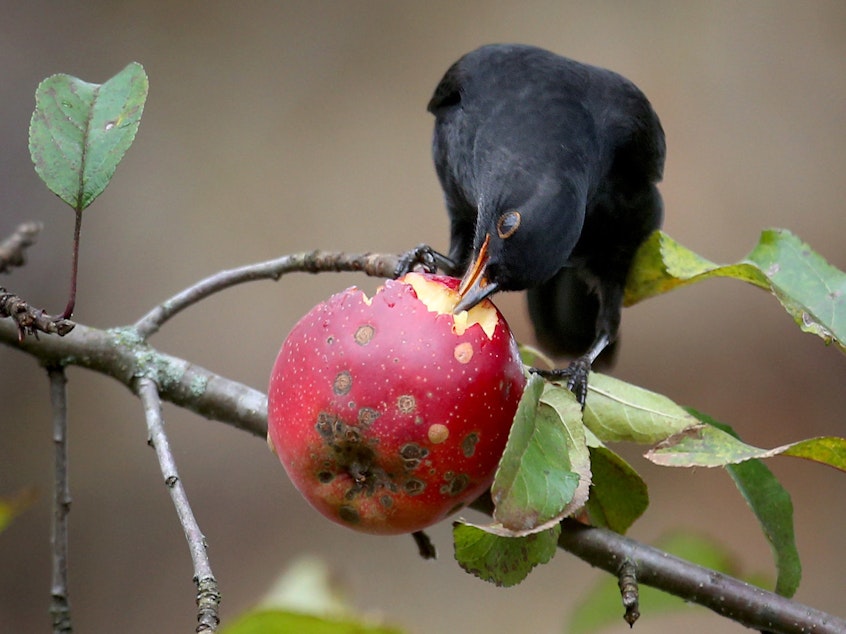To get by in a changing climate, plants need animal poop to carry them to safety

Evan Fricke knows exactly how long it takes, after a bird on the island of Saipan eats a piece of fruit, for it to come out the other end (Answer: as little as 10 minutes).
"There's always this poop angle to my research," says Fricke, an ecologist with Rice University. "PhD in bird poop basically."
Poop – or more specifically the digestion time of animals – is crucial to the survival of plants around the globe, especially as the climate gets hotter. That's because many plants, rooted firmly in the ground, rely on animals to eat and spread their seeds to new locations through their excrement.
It's a central ecological bargain: animals and birds get delicious fruit to eat and in return, plant seeds get a ride somewhere else. Climate change is making that movement especially critical. As temperatures rise, many plants are likely to be in places that are too hot or too dry for their survival, and they may need to migrate to new habitats.
But just when plants need it most, their gut-based seed delivery system is disappearing. Animal populations are declining due to hunting, habitat loss and extinction. That's reduced the ability of plants to move with climate change by 60%, according to a study by Fricke and colleagues in the journal Science.
Sponsored
"If they're unable to do that, that means certain plants might disappear from our forests and other ecosystems," Fricke says. "It highlights that there's this tight link between the biodiversity crisis and the climate crisis."
Go with the gut
The vital partnership between plants and animals has evolved over millions of years, and each relationship is unique. A bird that eats fruit may only carry the seeds a few feet. Larger animals, like elephants, can carry seeds for miles. There's even research that suggests some fruits are constipating, like from some tropical trees, so they can ensure their seeds get an even longer ride.
"More than half of plants around the world are dispersed by animals, so that interaction is incredibly important," says Noelle Beckman, an ecologist at Utah State University who was not involved with the study. In tropical ecosystems, the percentage can be even higher.
Fricke and colleagues gathered data on hundreds of plant and animal partnerships. Using a model to fill in the gaps where little information exists, they calculated a global assessment of how that decline is having an impact.
Sponsored
They found the loss of animals and birds around the globe, especially the decline of larger mammals, has already taken a toll on the ability of seeds to move around. More than one million plant and animal species are threatened, and the rate of extinction is accelerating, according to a United Nations report.
"Hopefully this will bring more attention to seed dispersal, because I think there's not as much appreciation for this process because it is so complex," Beckman says.
As temperatures rise and precipitation patterns change, some plants may need to move long distances to find niches that match their historical habitat. The pace of that change is happening faster than seeds can move in some cases. So land managers are beginning to look at "assisted migration," planting seedlings in locations better suited for them in a future climate. The decisions aren't simple, since moving one species can have a cascade of impacts on other plants and animals.
At the very least, Fricke says the study is a reminder that conservation isn't just about protecting a few species, but the relationships they have that branch through an entire ecosystem.
"Nature has a really remarkable ability to bounce back and recover," Fricke says. "But we do need biodiversity in order for nature to bounce back in that way." [Copyright 2022 NPR]



